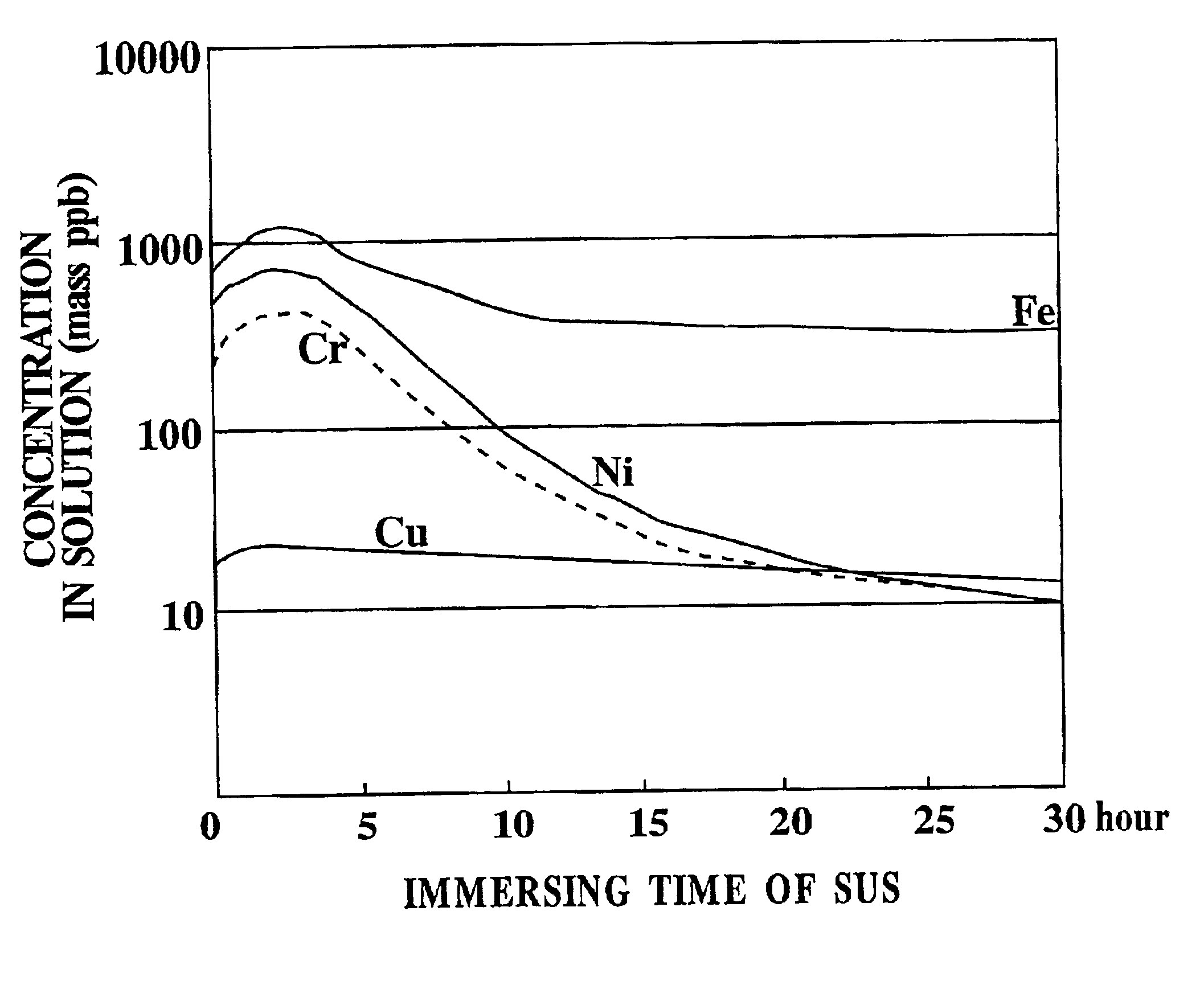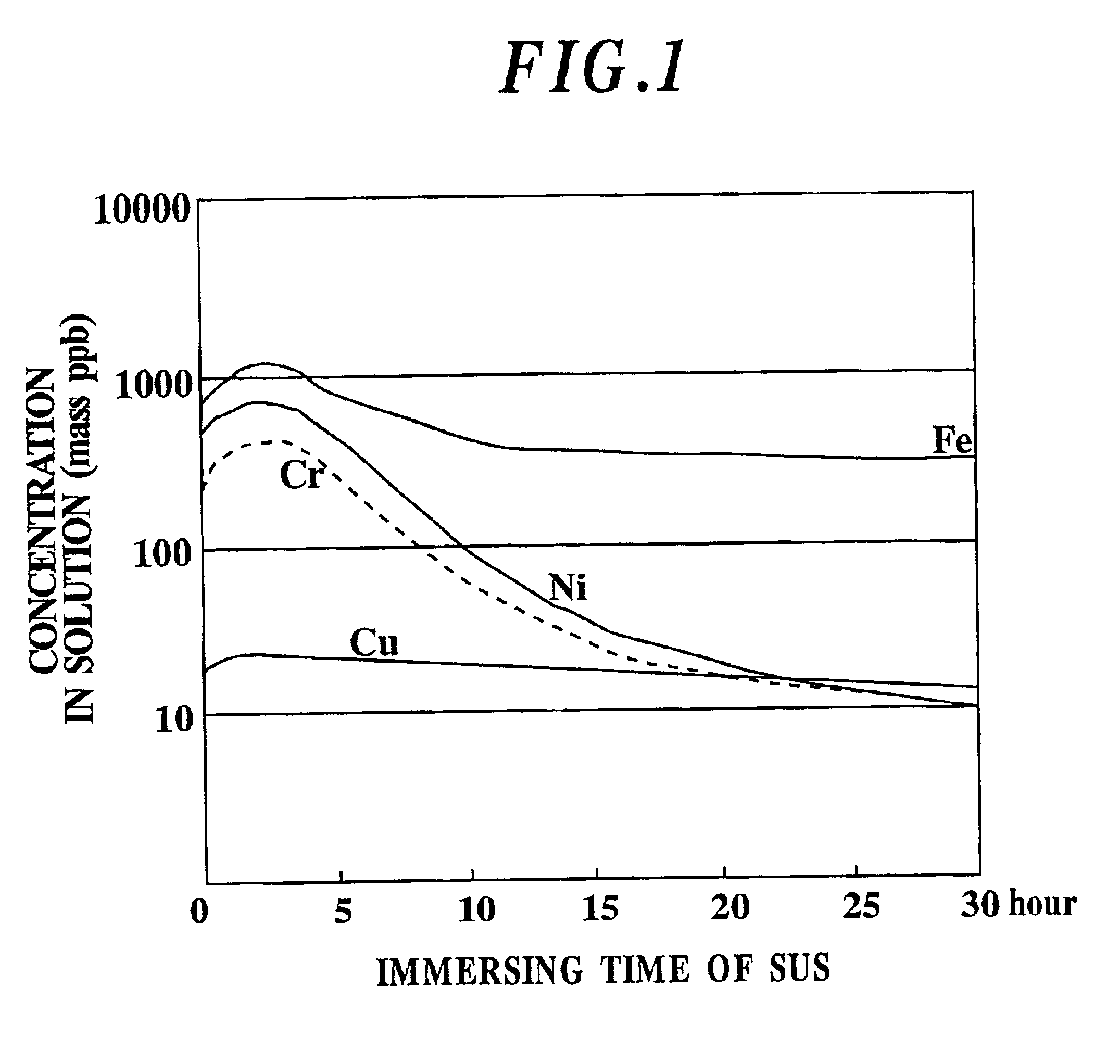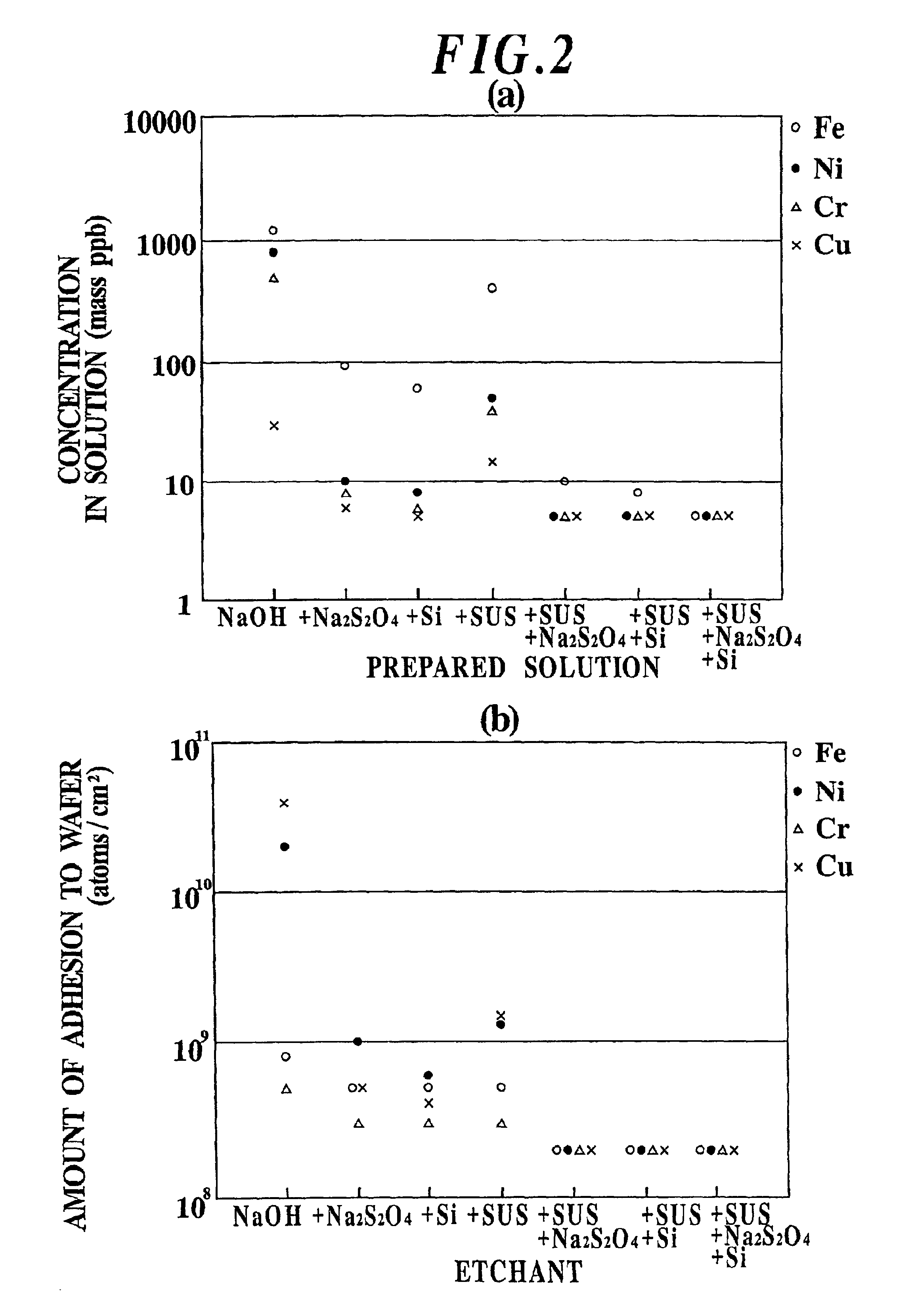Etching method for semiconductor silicon wafer
a silicon wafer and etching technology, applied in the field of semiconductor silicon wafer etching, can solve the problems of mechanical strength, adversely affecting electrical characteristics, and needing to be removed completely
- Summary
- Abstract
- Description
- Claims
- Application Information
AI Technical Summary
Benefits of technology
Problems solved by technology
Method used
Image
Examples
example
[0027]1. Method for Preparing Etchant
[0028](1) Treatment of Immersing Stainless Steel in Etchant
[0029]Into a tank made from polypropylene, 20 liters of sodium hydroxide (45% by mass for industry) was put in. After raising temperature to a predetermined temperature (85° C.), while keeping at 85±1° C., a plate (30 cm in length, 10 cm in width, and 0.2 mm in thickness) of SUS316 having a fresh metal surface was immersed so that both surfaces thereof would be in contact with the sodium hydroxide aqueous solution. Then, after a predetermined time is passed, the SUS316 was taken out.
[0030](2) Adding Dithionite
[0031]A predetermined amount (100 g) of sodium dithionite was added to the sodium hydroxide aqueous solution, which was prepared in said (1) by treatment of immersing SUS, and dissolved therein.
[0032](3) Dissolving Silicon
[0033]A predetermined amount (100 g) of Si was added to the sodium hydroxide aqueous solution, which was prepared in said (1) by treatment of immersing SUS, and dis...
PUM
| Property | Measurement | Unit |
|---|---|---|
| temperature | aaaaa | aaaaa |
| temperature | aaaaa | aaaaa |
| temperature | aaaaa | aaaaa |
Abstract
Description
Claims
Application Information
 Login to View More
Login to View More - R&D
- Intellectual Property
- Life Sciences
- Materials
- Tech Scout
- Unparalleled Data Quality
- Higher Quality Content
- 60% Fewer Hallucinations
Browse by: Latest US Patents, China's latest patents, Technical Efficacy Thesaurus, Application Domain, Technology Topic, Popular Technical Reports.
© 2025 PatSnap. All rights reserved.Legal|Privacy policy|Modern Slavery Act Transparency Statement|Sitemap|About US| Contact US: help@patsnap.com



